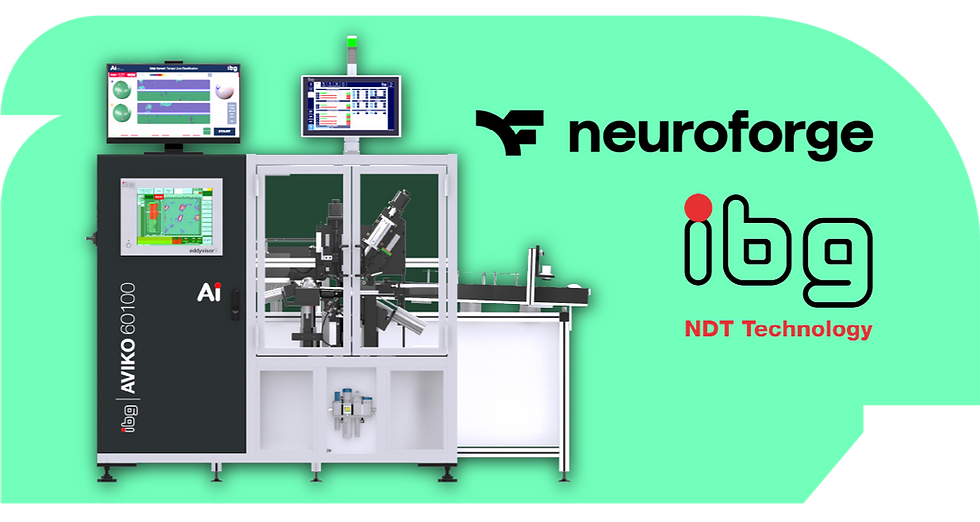5 industries where BigData is and will be a must-have
- NeuroForge
- Dec 12, 2022
- 3 min read
The extent of information flows in the world is immeasurable. They can be transmitted orally, physically, and digitally, and can take many different formats. It is evident that the world needs processing technologies capable of handling various manipulations with terabytes of information. And we have just that.
The answer to this challenge is Big Data - a collection of data that is constantly growing in size. The amount of information in Big Data collections is so vast that it is impossible to effectively store and process it using simple data management tools.
Today, companies are successfully leveraging Big Data technologies to harness the information they need to enhance their products and customer experiences. Those who fail to do so are missing out on opportunities and falling behind. Big Data is no longer just a buzzword or a trend; it is a necessity in modern, competitive markets.
In this article, the NeuroForge team has listed 5 industries in which advanced Big Data technologies are a must and why you need to implement them if your company belongs to any of these industries. This is based on our experience and predictions.
Banking and Fintech
Processing the ever-growing number of transactions can pose a significant challenge for data servers. Companies also need to monitor all actions to detect fraud or speculation in a timely manner. Additionally, there are risk reporting requirements, customer data transformation, and IT operations analysis.
If you run a trading company, you can implement pre-trade decision support analytics and trade analysis for high-frequency trading using Big Data technologies.
However, like in any other industry, FinTech and banking companies also need to choose the most suitable data architecture format (e.g., Data Mesh or Data Fabric). The key point in FinTech is that the diversity of currencies and financial services brings additional challenges that can be addressed through an appropriate data architecture.

2. Healthcare and Well-being
This encompasses both sides of the industry: research-oriented and customer-oriented.
Companies focused on developing apps for the average consumer can leverage Big Data to gain statistical insights about users, allowing them to identify trends and anomalies. This data also aids in creating personalized recommendations for users and monitoring their progress using various metrics.
For research-oriented healthcare companies, Big Data presents numerous possibilities: personalized medicine, discoveries related to incurable diseases, mapping and storage of DNA data, precise treatment recommendations, improved disease diagnoses, and much more.
3. Logistics and Transportation
As an economy grows, trade intensity increases. With increased trade intensity comes the growth of the manufacturing sector. As production expands, we need to adapt and improve our logistics routes.
This is where Big Data comes into play. By analyzing transportation data collections, companies can calculate the best route, determine the mode of transport, choose the optimal timing, find the most efficient way to package goods for transportation, and monitor the status of deliveries in real-time. It provides a significant competitive advantage.
It's important to note that in this industry, Big Data can also be utilized by the government (traffic control, government directives, or weather forecasts) or by individuals (holiday routes and transportation planning). In such cases, each state must develop its own data management policies.

4. Manufacturing
Optimizing a modern factory is a significant challenge. However, with Big Data, it becomes more manageable.
Starting from capturing data on assembly line efficiency and analyzing internal management systems to detecting bottlenecks in supply chain systems, Big Data provides valuable insights. It's worth mentioning that in manufacturing, Big Data is also a means to increase productivity and reduce waste.

5. Retail, Wholesale, and Procurement
And last but not least, the entire commerce industry is geared towards implementing Big Data. We can list a whole range of things that can be improved through the use of Big Data technologies in retail and wholesale:
Providing a personalized shopping experience
Predicting seasonal trends and demand
Enhancing the customer experience
Better analysis of customer reviews and feedback
Storing and calculating sales data
Processing large procurement datasets
Enabling efficient marketing campaigns based on quality data
This is, of course, just a rough outline of the potential improvements. However, each company must conduct its own analysis before defining key growth perspectives.

Summary
As we have mentioned before, quality data can propel you to become an industry leader much faster if you handle it correctly. However, it is important to have a clear understanding of your company. Storing and making data available for further analysis is crucial, as it does not benefit a company that fails to do so.
In other cases, the volume, velocity, and variety of data processed by your company are defined based on the analysis of these "three V's." This allows you to determine the quantity and type of data you need for Big Data technologies. To ensure the best results, it is advisable to have professionals thoroughly review every detail.
If your company belongs to any of the aforementioned industries, we invite you to schedule a consultation with us. During the consultation, we can discuss all the possibilities of our collaboration.


